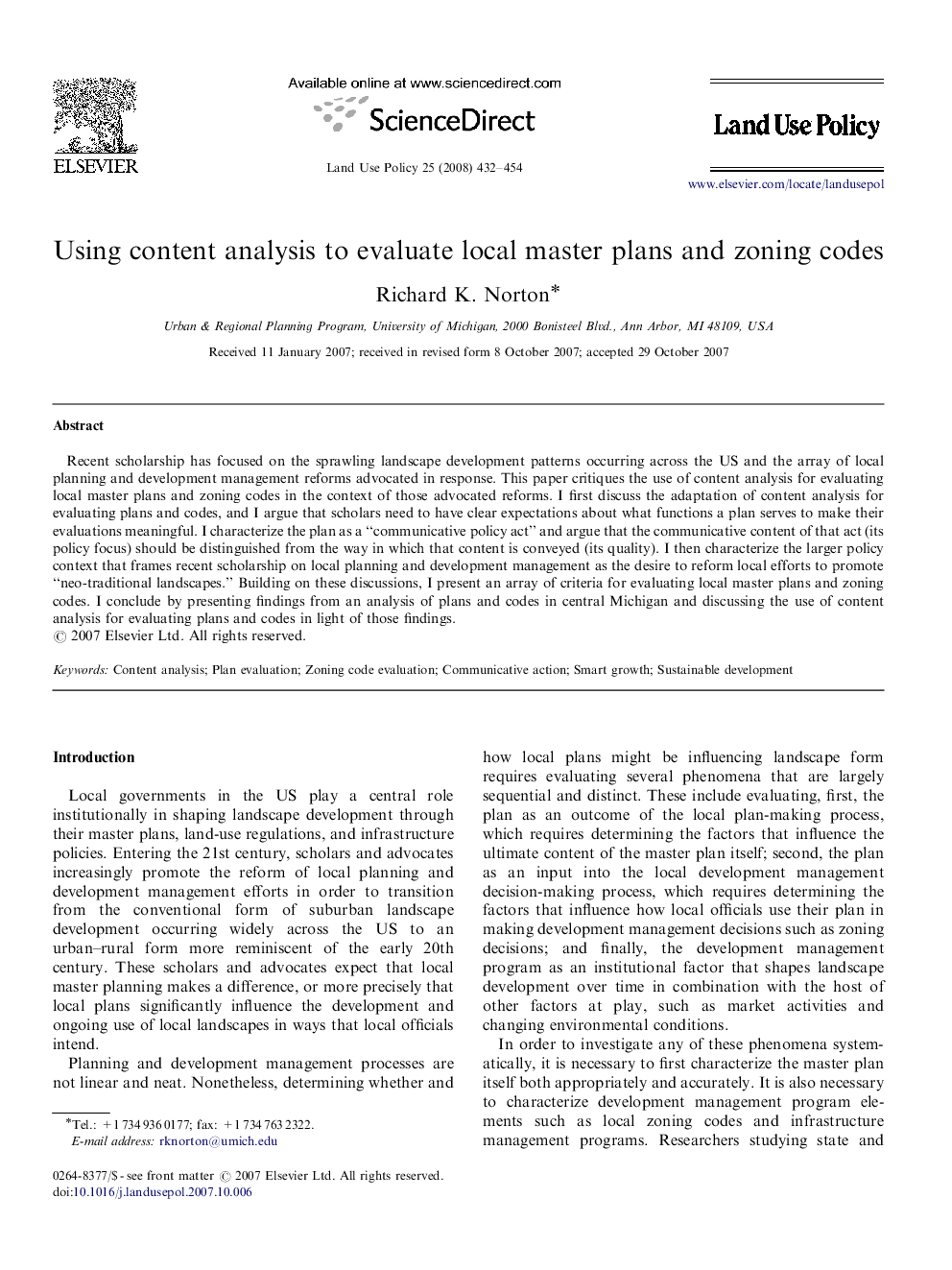| Article ID | Journal | Published Year | Pages | File Type |
|---|---|---|---|---|
| 93839 | Land Use Policy | 2008 | 23 Pages |
Recent scholarship has focused on the sprawling landscape development patterns occurring across the US and the array of local planning and development management reforms advocated in response. This paper critiques the use of content analysis for evaluating local master plans and zoning codes in the context of those advocated reforms. I first discuss the adaptation of content analysis for evaluating plans and codes, and I argue that scholars need to have clear expectations about what functions a plan serves to make their evaluations meaningful. I characterize the plan as a “communicative policy act” and argue that the communicative content of that act (its policy focus) should be distinguished from the way in which that content is conveyed (its quality). I then characterize the larger policy context that frames recent scholarship on local planning and development management as the desire to reform local efforts to promote “neo-traditional landscapes.” Building on these discussions, I present an array of criteria for evaluating local master plans and zoning codes. I conclude by presenting findings from an analysis of plans and codes in central Michigan and discussing the use of content analysis for evaluating plans and codes in light of those findings.
